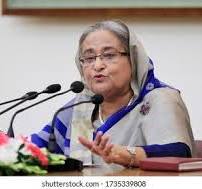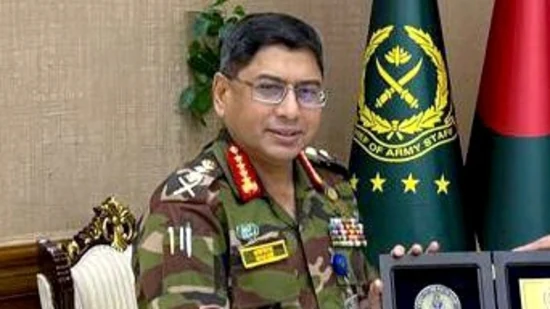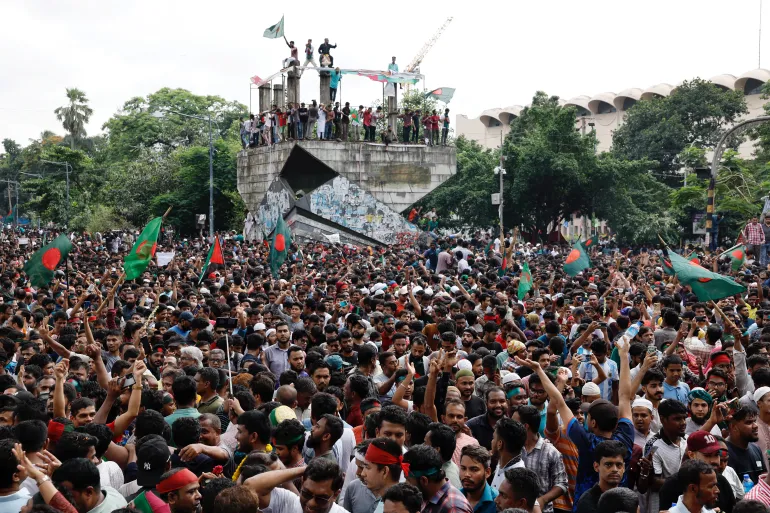Bangladesh people cerebrate resignation of Prime Minister Sheikh Hasina
Dhaka Aug. 5—Bangladesh’s Prime Minister Sheikh Hasina has resigned and fled the country, following weeks of deadly demonstrations.
In an address to the nation on Monday, the Army chief, General Waker-Uz-Zaman, said that an interim government will now run the country.
Hasina, who had ruled the country for two decades, boarded a military helicopter, after crowds ignored a national curfew to storm her palace in Dhaka.

Bangladesh Prime Minister Sheikh Hasina
The resignation comes after 300 people have died amid weeks of protest the authorities have sought to crush. Following a night of deadly violence that killed close to 100 people on Sunday, tension had remained high on Monday as protesters called for a march on Dhaka and the army prepared to address the nation.
By early afternoon, however, media reported that the mood on the streets had turned to one of celebration after the news of Hasina’s departure spread.
The army chief urged citizens to keep trust in the army, which, he said, would return peace to the country.

Army Chief Gen. Waker-UZ-Zaman
“We will also ensure that justice is served for every death and crime that occurred during the protests,” he said, calling on the public to exercise patience and cease any acts of violence and vandalism.
“We have invited representatives from all major political parties and they have accepted our invitation and committed to collaborating with us,” the general added.
Images on national television showed thousands of people breaking into the prime minister’s official residence. It also showed large crowds of protesters out in the street in scenes of jubilation as the news of the departure of Hasina started spreading.
Protests in the country started a month ago over a controversial job quota scheme which reserved a third of government jobs for children of war veterans of the country’s 1971 independence war with Pakistan.
The government responded by shutting down universities and using the police and military to crack down on protesters. Hasina imposed a nationwide curfew and cut off access to phones and the internet. The protests continued, and the country’s top court ruled that the highly contested quotas should be scaled back from 30 percent to 5 percent, with 3 percent for relatives of veterans.
It came to no avail. The demonstration movement had morphed into an unprecedented and nationwide uprising demanding the resignation of Hasina and accountability for those killed.
A UN special rapporteur, Irene Khan, said now that she is gone and the army has promised an interim government, the military has a “very tough job ahead”.
“We are all hoping that the transition would be peaceful and that there will be accountability for all the human rights violations that have taken place recently including the killing of about 300 people in the last three weeks,” Irene Khan told the media
“Bangladesh has, of course, an enormous task ahead. It is not the poster child of sustainable development anymore. The previous government had driven this country into despair, and there would be a lot of hard work to do to build it up but most of all I think its extremely important that the army respect human rights”, she said.



